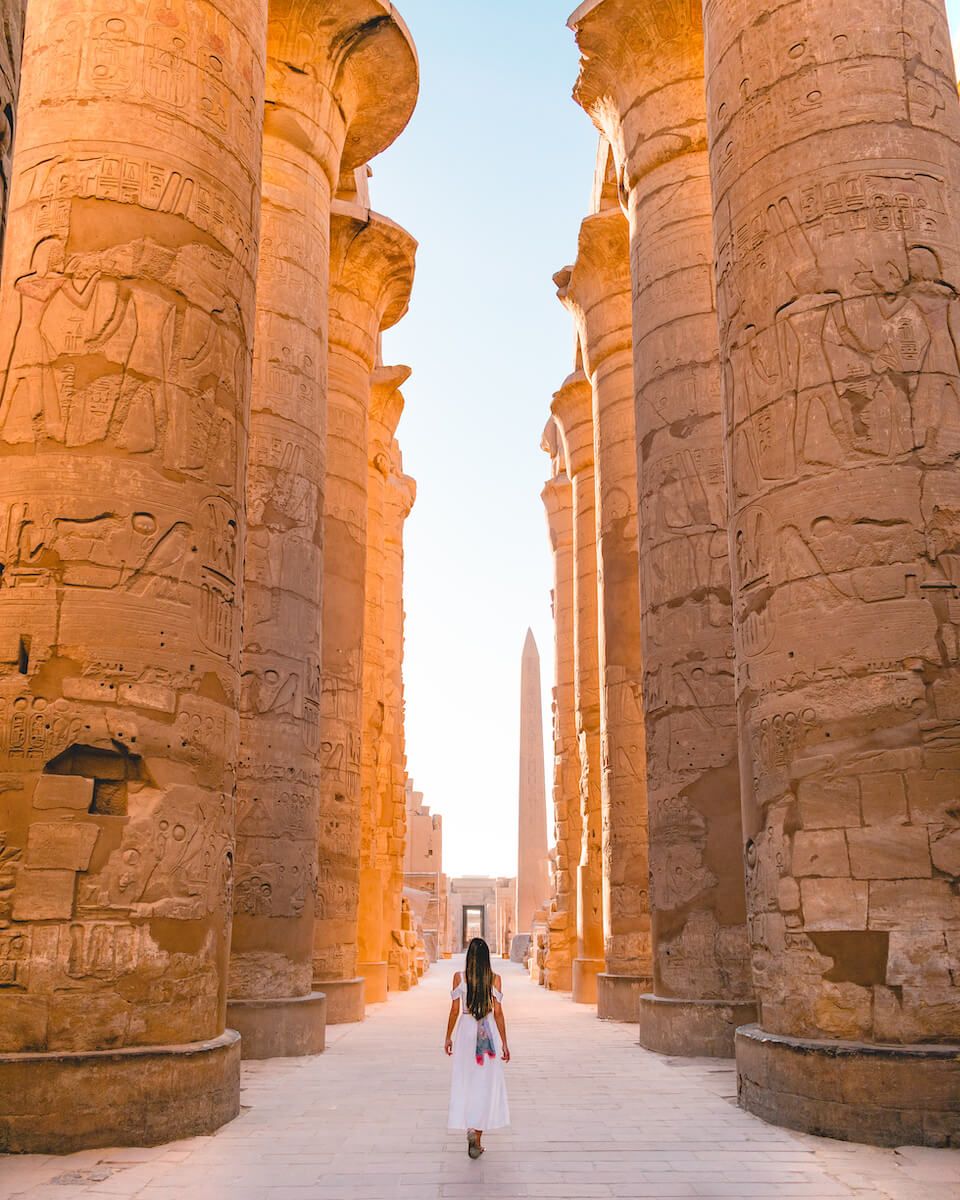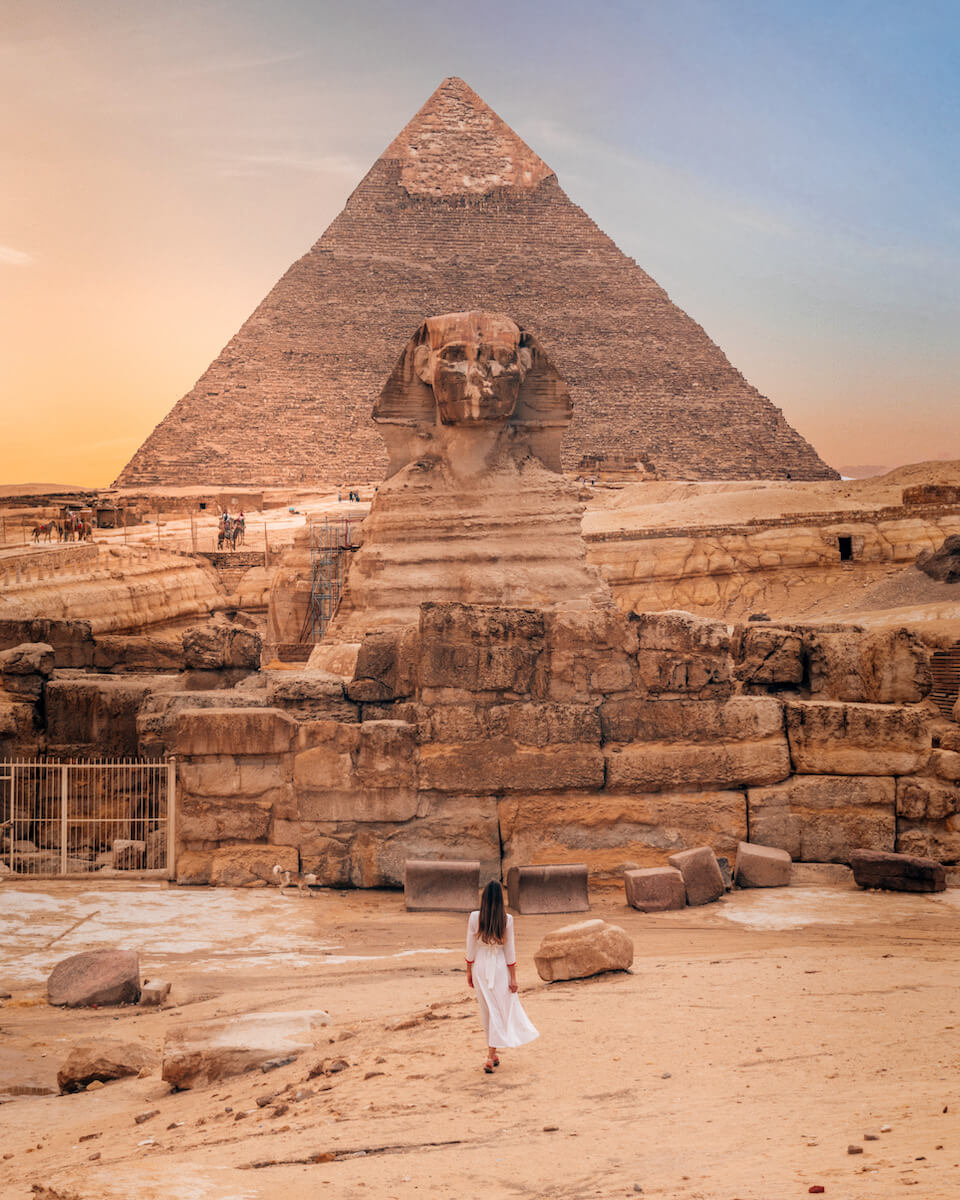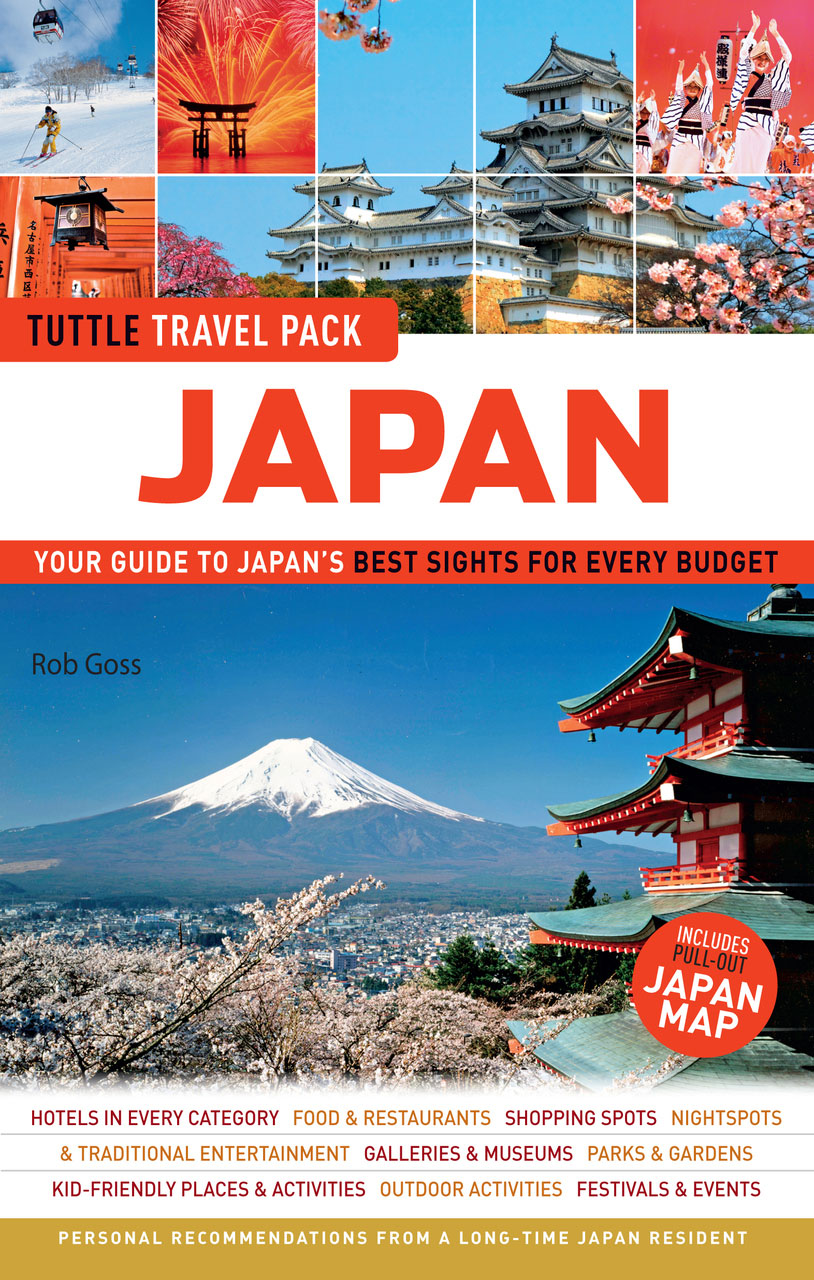
Egypt, a land steeped in millennia of history, a cradle of civilization, and a vibrant mosaic of ancient wonders and modern dynamism, beckons travelers with an irresistible allure. From the colossal pyramids that pierce the desert sky to the tranquil waters of the Nile, this North African gem offers an experience that transcends mere tourism; it’s a journey through time, a sensory explosion, and a profound connection with humanity’s past. Whether you’re a history buff, an adventurer, a culture seeker, or simply someone yearning for an extraordinary escape, Egypt promises an unforgettable tapestry of experiences.
This comprehensive guide will equip you with everything you need to plan your dream Egyptian adventure, from its rich historical narrative to practical travel tips, ensuring you make the most of your exploration of this captivating land.
A Chronicle of Civilizations: Egypt’s Enduring History
Related Articles about Egypt: A Timeless Tapestry of Wonders – Your Ultimate Guide to Unforgettable Adventures:
- The Grand Tapestry of America: A Journey Through Its Top Experiences
- A Journey Through Time and Taste: Your Ultimate Travel Guide to France
- Italy: A Journey Through Timeless Beauty and Enduring Charm
- La Dolce Vita: Unveiling the Timeless Charms and Top Experiences of Italy
- Unveiling the Treasures of Turkey: A Journey Through History, Culture, and Breathtaking Landscapes
To truly appreciate Egypt, one must delve into its awe-inspiring history. For over 3,000 years, the ancient Egyptian civilization flourished, leaving behind an unparalleled legacy of monumental architecture, intricate hieroglyphs, and profound religious beliefs. The Pharaonic era (c. 3100 BCE – 30 BCE) witnessed the construction of iconic structures like the Great Pyramids of Giza and the Sphinx, testaments to their advanced engineering and astronomical knowledge. The New Kingdom (c. 1550 BCE – 1070 BCE) saw powerful pharaohs like Hatshepsut, Akhenaten, Tutankhamun, and Ramesses II rule, leaving behind magnificent temples like those at Karnak and Luxor, and the Valley of the Kings.
Following the Pharaonic period, Egypt fell under various foreign dominations, including the Greeks (Ptolemaic dynasty, featuring Cleopatra VII), the Romans, and later the Arabs, who introduced Islam and Arabic as the dominant language and religion. The Ottoman Empire ruled for centuries, followed by British influence, until Egypt gained full independence in the mid-20th century. This rich historical tapestry has left an indelible mark on Egypt’s culture, architecture, and identity, making every corner of the country a living museum.
Unveiling the Treasures: Top Attractions in Egypt
Egypt’s allure lies in its staggering array of historical and natural wonders. Here are the absolute must-sees:
1. The Pyramids of Giza and the Sphinx: No visit to Egypt is complete without standing in awe of these ancient marvels. The Great Pyramid of Giza, the oldest and largest of the three pyramids, was built as a tomb for Pharaoh Khufu. Adjacent are the pyramids of Khafre and Menkaure, and the enigmatic Great Sphinx, a mythical creature with the body of a lion and the head of a human, guarding the plateau. Exploring these sites, especially at sunrise or sunset, offers a truly magical experience.
2. The Egyptian Museum (Cairo): Home to an unparalleled collection of ancient Egyptian antiquities, the Egyptian Museum is a treasure trove of history. Its most famous exhibit is the Treasures of Tutankhamun, including his solid gold death mask and the sarcophagi. You’ll also find mummies of pharaohs, intricate sarcophagi, hieroglyphic inscriptions, and countless artifacts that paint a vivid picture of ancient Egyptian life.
3. Luxor: The World’s Largest Open-Air Museum: Situated on the banks of the Nile, Luxor is often referred to as the "world’s greatest open-air museum."
- Karnak Temple Complex: This vast complex is a city of temples, chapels, pylons, and obelisks dedicated to the Theban triad of gods. Its sheer scale and intricate carvings are breathtaking.
- Luxor Temple: Located in the heart of the city, Luxor Temple is particularly stunning at night when illuminated, revealing its grandeur and historical significance.
- Valley of the Kings: Across the Nile from Luxor, this royal necropolis served as the burial ground for pharaohs and nobles of the New Kingdom. Explore the elaborately decorated tombs, including the famous tomb of Tutankhamun.
- Valley of the Queens: Similar to the Valley of the Kings, this site houses the tombs of queens and royal children, most notably the tomb of Nefertari, renowned for its exquisite artwork.
- Hatshepsut Temple: Carved into the cliffs of Deir el-Bahari, this mortuary temple dedicated to Queen Hatshepsut is an architectural masterpiece with its striking terraced design.
4. A Nile Cruise: Embarking on a Nile cruise is an iconic Egyptian experience. Sailing leisurely along the lifeblood of Egypt, you’ll witness ancient temples, lush farmlands, and traditional villages pass by. Cruises typically range from 3 to 7 nights and often include stops at Luxor, Edfu, Kom Ombo, and Aswan. It’s a relaxing and immersive way to see many of Egypt’s most important historical sites.
5. Aswan: This serene city in Upper Egypt offers a more relaxed pace and stunning natural beauty.
- Philae Temple: Dedicated to the goddess Isis, this beautiful temple was relocated to Agilkia Island to save it from the rising waters of the Nile after the construction of the Aswan High Dam.
- Abu Simbel: While a day trip from Aswan, these colossal rock-cut temples built by Ramesses II are an absolute marvel. They were also famously relocated to prevent them from being submerged.
- The High Dam: An engineering feat of the 20th century, the Aswan High Dam controls the Nile’s floods and generates electricity.
- Nubian Villages: Take a felucca (traditional sailboat) ride to visit vibrant Nubian villages, experiencing their unique culture, colorful houses, and warm hospitality.
6. Alexandria: Founded by Alexander the Great, this Mediterranean coastal city boasts a rich Greco-Roman heritage.
- Bibliotheca Alexandrina: A modern marvel, this iconic library is a tribute to the ancient Library of Alexandria and a center for culture and learning.
- Catacombs of Kom el Shoqafa: An intriguing underground cemetery showcasing a blend of Egyptian, Greek, and Roman artistic styles.
- Qaitbay Citadel: A 15th-century defensive fortress built on the site of the ancient Lighthouse of Alexandria.
Navigating Your Egyptian Adventure: Travel Tips
To ensure a smooth and enjoyable trip, keep these practical tips in mind:
- Visa Requirements: Check visa requirements for your nationality well in advance. Many nationalities can obtain a visa on arrival at major airports, but it’s always best to confirm.
- Currency: The local currency is the Egyptian Pound (EGP). ATMs are widely available in cities, and credit cards are accepted in hotels, larger restaurants, and souvenir shops. However, it’s advisable to carry some cash for smaller purchases and local markets.
- Dress Code: Egypt is a predominantly Muslim country, and while tourist areas are more relaxed, it’s respectful to dress modestly, especially when visiting religious sites. Women should cover their shoulders and knees. For men, long trousers are recommended.
- Tipping (Baksheesh): Tipping is an integral part of Egyptian culture. Small tips are expected for various services, from hotel staff to guides and drivers. Keep small denominations of EGP handy.
- Hydration: The Egyptian climate can be hot, especially during summer. Drink plenty of bottled water to stay hydrated and avoid dehydration.
- Sun Protection: Always wear sunscreen, a hat, and sunglasses to protect yourself from the strong sun.
- Scams: Be aware of common tourist scams, such as overly persistent touts or unsolicited offers. Politely but firmly decline if you’re not interested.
- Photography: Ask for permission before taking photos of people, especially in rural areas.
The Perfect Time to Visit Egypt
The best time to visit Egypt is during the cooler months, from October to April. During this period, the weather is pleasant, making it ideal for sightseeing and outdoor activities.
- October to April: This is the peak tourist season, offering comfortable temperatures for exploring ancient sites and enjoying cruises. December and January are particularly popular.
- May to September: These months are very hot, especially in Upper Egypt (Luxor and Aswan), with temperatures often exceeding 40°C (104°F). If you don’t mind the heat, you can find fewer crowds and lower prices.
Where to Rest Your Head: Nearby Hotels
Egypt offers a wide range of accommodation options, from luxurious five-star resorts to budget-friendly guesthouses. Here are some popular areas and hotel types:
- Cairo:
- Luxury: The Nile Ritz-Carlton, Four Seasons Hotel Cairo at Nile Plaza, St. Regis Cairo.
- Mid-Range: Steigenberger El Tahrir Cairo, Ramses Hilton.
- Budget: Numerous hostels and guesthouses in the Downtown area.
- Giza: Hotels offering pyramid views are highly sought after, such as Marriott Mena House, Cairo.
- Luxor:
- Luxury: Sofitel Winter Palace Luxor, Hilton Luxor Resort & Spa.
- Mid-Range: Steigenberger Nile Palace Luxor, Iberotel Luxor.
- Budget: Guesthouses along the West Bank offer a more local experience.
- Aswan:
- Luxury: Sofitel Legend Old Cataract Aswan, Movenpick Resort Aswan.
- Mid-Range: Pyramisa Island Hotel Aswan.
- Budget: Nubian guesthouses on Elephantine Island.
- Red Sea Resorts (Hurghada, Sharm El Sheikh): If you’re looking for beach relaxation and water sports, these coastal cities offer an abundance of all-inclusive resorts catering to various budgets.
A Taste of Egypt: Delicious Local Food
Egyptian cuisine is a delightful fusion of Mediterranean and Middle Eastern flavors, characterized by fresh ingredients and aromatic spices. Don’t miss trying these local specialties:
- Koshary: The national dish, a hearty and affordable vegetarian mix of rice, macaroni, lentils, chickpeas, topped with a spicy tomato sauce and crispy fried onions.
- Ful Medames: Slow-cooked fava beans, a staple breakfast dish, typically seasoned with cumin, lemon juice, garlic, and olive oil.
- Ta’ameya (Egyptian Falafel): Made from fava beans (unlike the chickpea-based falafel in other regions), these are crispy on the outside and fluffy on the inside, often served in pita bread.
- Molokhia: A green leafy vegetable stew, often made with chicken or rabbit broth, with a unique texture and flavor.
- Mahshi: Stuffed vegetables, such as zucchini, eggplant, peppers, and grape leaves, filled with rice, herbs, and sometimes minced meat.
- Shawarma: Marinated meat (chicken or beef) cooked on a vertical rotisserie and thinly sliced, served in bread with tahini and vegetables.
- Desserts: Indulge in Om Ali (a bread pudding), Basbousa (semolina cake), and Kunafa (a cheese pastry soaked in syrup).
- Drinks: Try Karkadeh (hibiscus tea), Sahlab (a warm, milky drink), and fresh juices.
Getting Around Egypt: Transportation Options
Egypt offers various transportation options to navigate its vast landscape:
- Domestic Flights: For longer distances, such as between Cairo and Luxor or Aswan, domestic flights with EgyptAir are the quickest and most convenient option.
- Trains: The train network connects major cities along the Nile Valley. Overnight sleeper trains are a popular choice for journeys between Cairo and Luxor or Aswan, offering a budget-friendly way to travel and save on accommodation.
- Nile Cruises: As mentioned earlier, Nile cruises are a fantastic way to travel between Luxor and Aswan, combining sightseeing with comfortable transit.
- Buses: An extensive bus network operates between cities, offering a more economical option. Companies like Go Bus and Blue Bus provide comfortable services.
- Taxis and Ride-Sharing: Taxis are readily available in cities. It’s advisable to negotiate the fare before starting your journey or opt for metered taxis. Ride-sharing apps like Uber and Careem are also popular and convenient in Cairo and Alexandria.
- Microbuses: A common mode of local transportation in cities, these minibuses follow fixed routes and are very affordable.
- Felucca: Traditional wooden sailboats are perfect for short excursions on the Nile, especially in Aswan, offering a serene and authentic experience.
Egypt is a land that captivates the soul and ignites the imagination. With its unparalleled historical treasures, vibrant culture, and warm hospitality, it promises a journey that will leave an indelible mark on your heart. So, pack your bags, embrace the adventure, and prepare to be enchanted by the timeless wonders of Egypt.








